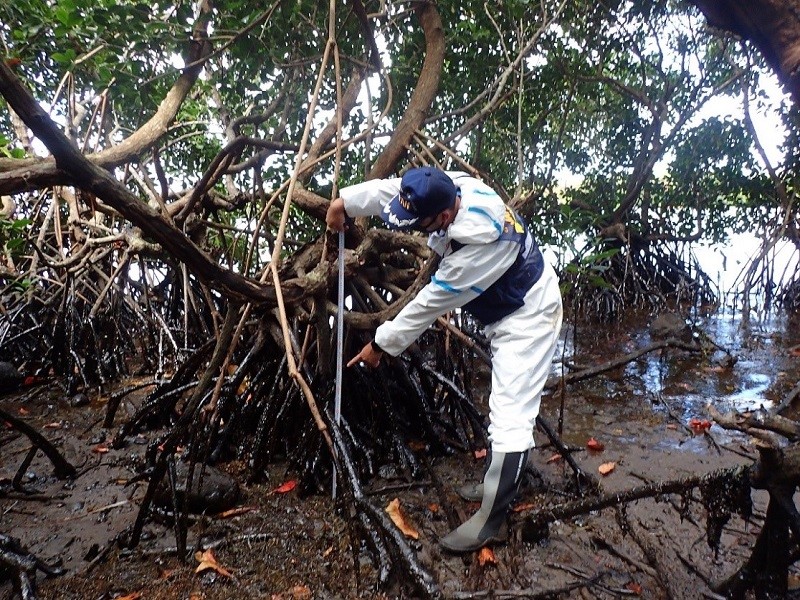
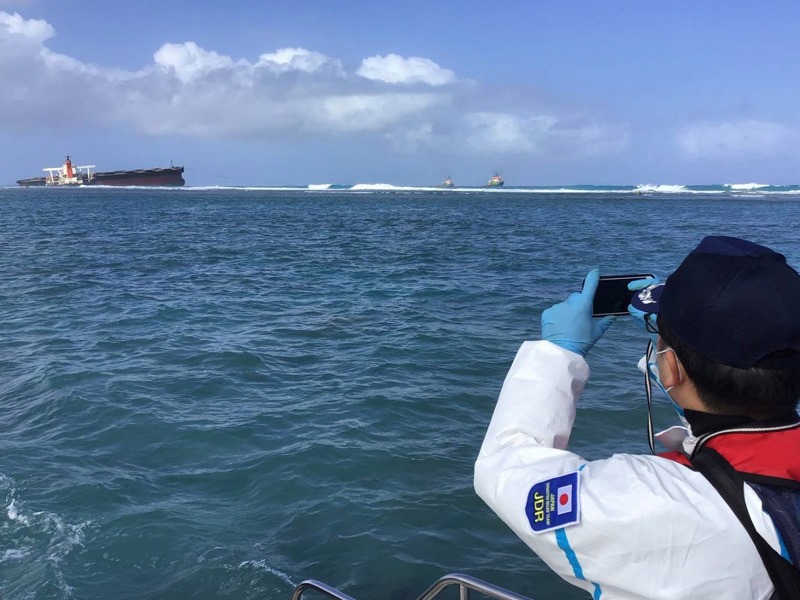
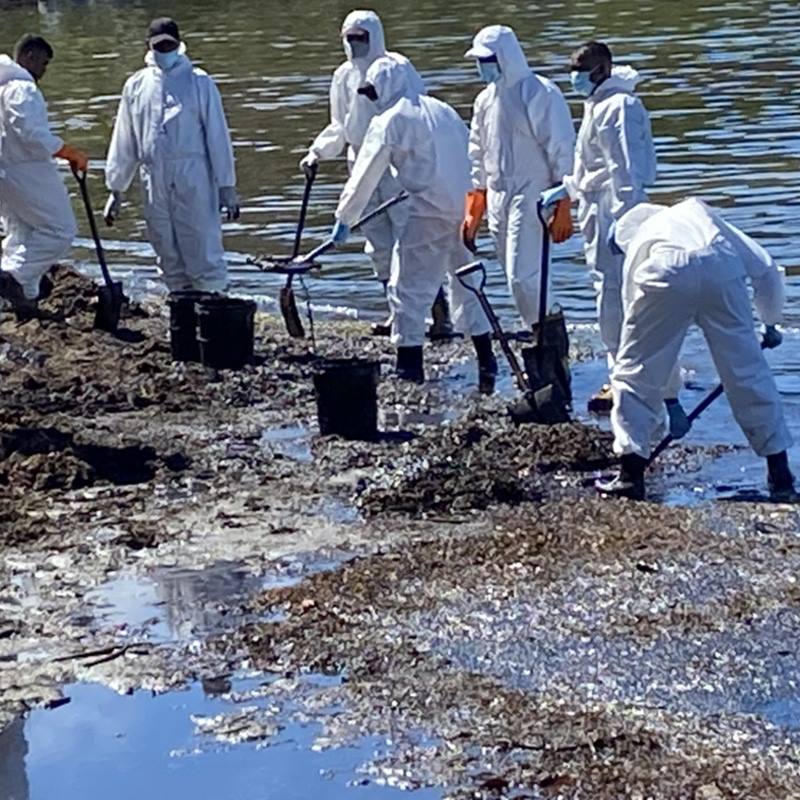
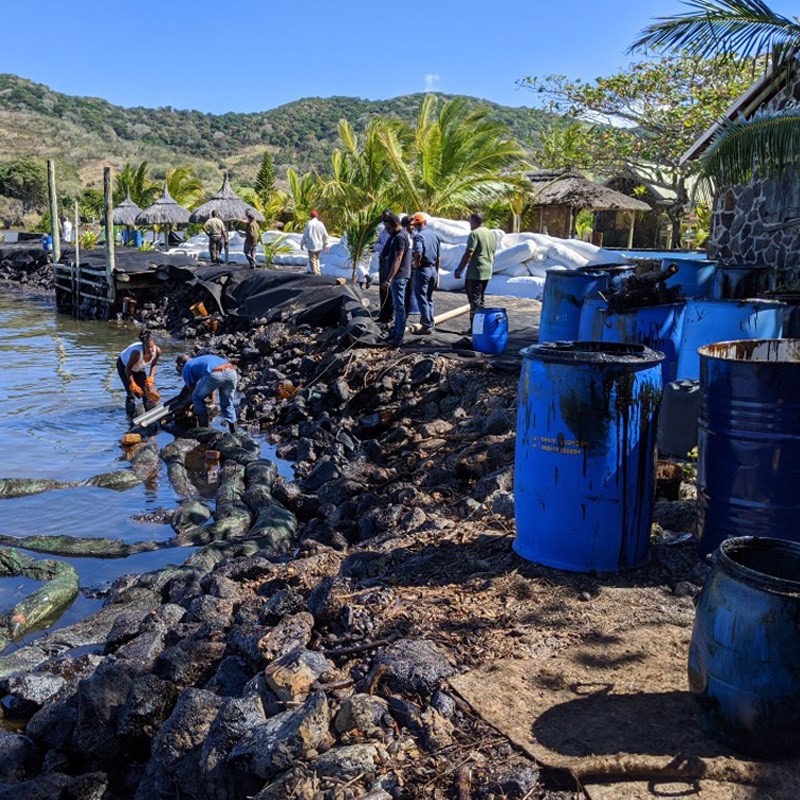
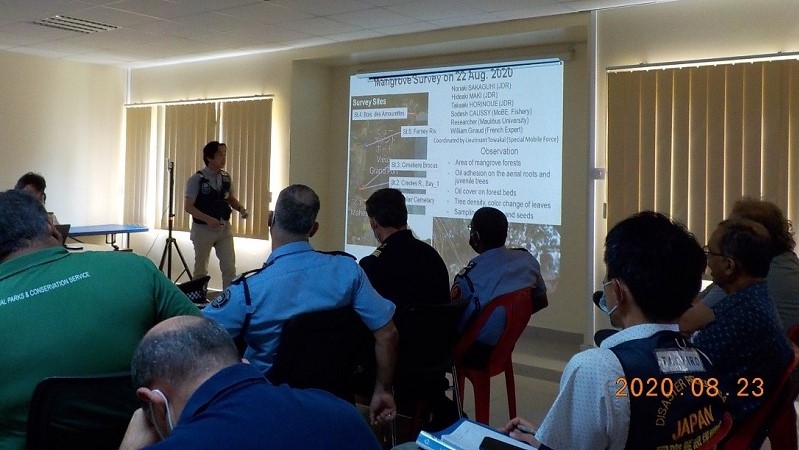
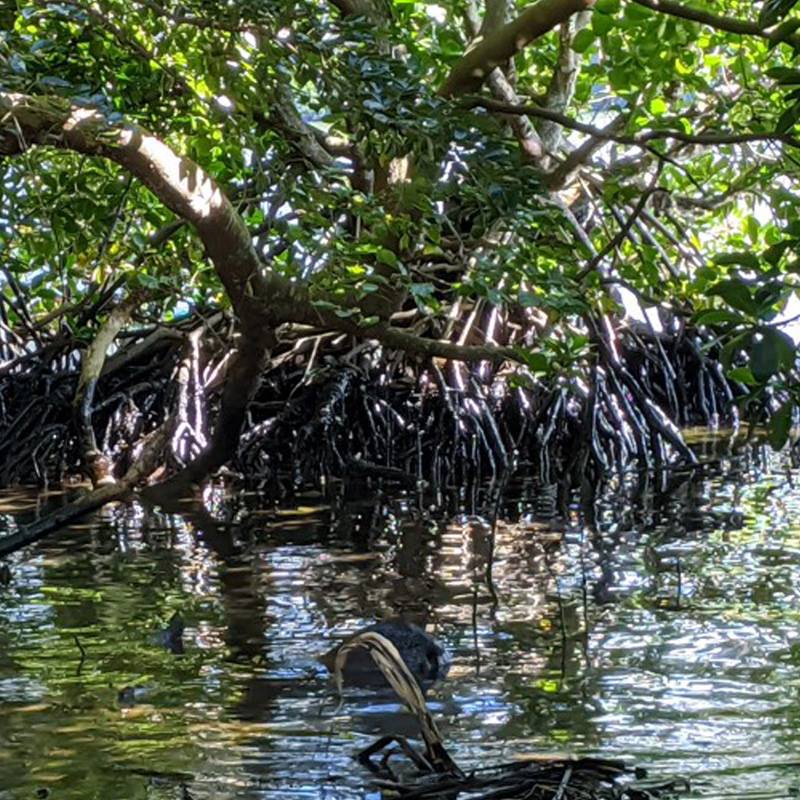






The major oil spill caused by a Japanese ship that ran aground in Mauritius may pose a long-term threat to the region’s ecology, including to the Indian Ocean island’s delicate mangroves, Japanese experts said Tuesday.
The bulk carrier MV Wakashio crashed into a reef last month spewing more than 1,000 tonnes of oil into pristine waters that are home to mangrove forests and endangered species.
After the boat split in two, the larger piece was towed out to sea and sunk, but the smaller section remains stranded on the reef.
In response to a request from the Government of the Republic of Mauritius, the Japan International Cooperation Agency (JICA) dispatched two Japan Disaster Relief expert teams.
The first JDR team, composed of six people, including oil removal experts from the Japan Coast Guard were dispatched on August 10, and have been engaged in its assistance activities including oil removal on site. While the second JDR team, composed of seven poeple, including five environment experts, were dispatched on August 19 and have been assessing the environmental effects of the oil spill on coral reefs, mangrove ecosystems, as well as other environmental areas.
Japanese experts and officials in Mauritius said they had surveyed a dozen marine spots about 800 metres (yards) northwest of the wreck, and found no major damage, nor any sign of oil on the ocean bottom or on the coral reef.
“We snorkeled and inspected 12 points in the area from the coral reef to the ship’s stranding point. We did not find any corals that have obviously died from the oil spill. We did not see any places where oil accumulated on coral or the sea bottom. However, the water was more cloudy towards the stranding point. We believe that this is because the ship is being rocked in waves and destroying corals,” said Noriaki Sakaguchi, an ecosystems expert with JICA.
But they said the remaining wreck appeared to be grinding against the reef as waves push it back and forth.
“If this situation continues for a long time, it will impose stress on the corals and possibly kill it. Now it’s winter here, but when the water temperature goes up in summer, the stress from this situation on the corals will further increase,” Sakaguchi said.
“If the clouding in the water continues, it may kill the corals. Intensive monitoring will be necessary before taking necessary measures,” Sakaguchi added.
He said efforts to remove sediment could harm the coral, which is also being damaged by ropes holding oil fences set up to stop the spill reaching shore. Removing the remaining wreckage appears to be the only solution to the problem, the team said.
The spilled oil has also reached the soft soil of mangrove forests along the coastline.
While there is no evidence of mangrove death yet, the oil could kill plants in the protected area in coming months, the team warned.
“We also inspected seven points in the coastal area where the oil has contaminated the mangrove forests.In the places where the oil contamination is severe, the mangroves may get its breathing roots get covered by oil and suffocated to death or die from the poison released from the oil contamination,” Sakaguchi said.
Mangrove clean-up is extremely complicated because human activity in the area risks driving oil deeper into the soil where it could cause more harm.
For now, cleanup efforts are focused on picking up seagrass and other plants that wash through oil-covered areas and end up on the shore.
The team called for long-term monitoring of the area after the accident, which is still under investigation by Mauritian authorities.
Japan’s Kyodo News said Monday that crew on the ship had steered it close to shore because they wanted to find a mobile signal so they could contact family and ask about the coronavirus situation at home.
It cited an unnamed judicial source, who also said an alcohol-fuelled birthday party had been held on board before the accident, though it was not clear if on-duty crew participated.
with AFP